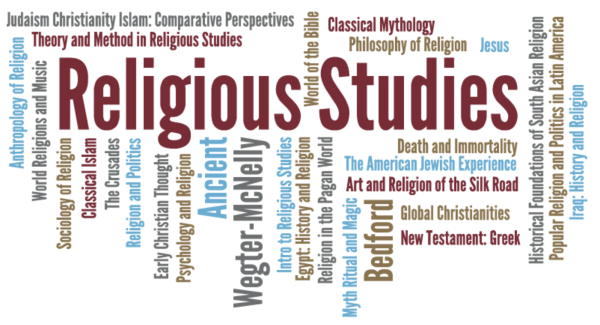A call for the reexamination of an institutional history
May 9, 2019
The national trend we began to see starting in 2016 is the recognition of the problematic nature of glorifying Confederate statues.
In the past two years, there has been an increasing movement to remove these statues or contextualize them, as a way of coming to terms with this nation’s dark past.
The United States as a nation that chooses to forget the darker parts of its past is nothing new.
This notion has rung true ever since this country was founded, especially with events like the Boston Massacre or the Boston Tea Party. If memory is an arena of struggle, then why are the positive and gleaming aspects remembered?
Union College, which heralds its rich and thorough history, is no exception to forgetting parts of its problematic past.
Time lends itself to being one of the greatest struggles, but if there are painstaking efforts to remember the positive aspects of Union College’s history, then some can be made to remember all of the pieces.
Author and Historian Craig Steven Wilder uses his book, “Ebony and Ivy,” to bring light to the troubled Northern past and the prevalence of racism and slavery in elite Ivy league schools.
Since 2018, the country is beginning to recognize slavery as a national problem, not just an affliction of the South.
Amid this turbulent political time, it is critical that the nation or places like Union do not sanitize their history. Growth cannot come from hiding behind comfort.
Pedagogy is immensely effective when learning about one’s mistakes.
Union has struggled with a similar past – including its beloved and longest-serving president, Eliphalet Nott and his rather racist views. Bryan Stevenson, of the Equal Justice Initiative, speaks about “truth and reconciliation.”
This is the notion that there cannot be clarity or reconciliation with one’s past without the confrontation of the truth, which, in the case of Eliphalet Nott and Union, needs to be examined.
When a black student, David Rosell, began attending Union in 1859, the Southern student population found themselves angry that a black student had enrolled.
In an effort to appease those students, Nott ordered that there be a vote of the student class.
Although the vote came out a majority in favor of allowing Rosell to remain, Nott declared after the fact that a unanimous vote was needed and Rosell was forced to leave.
This is an awful story of the College to which it has not owned up or barely recognized or apologized for. Nonetheless, it is this history that elite colleges in the Northeast sanitize.
Another facet to look at is that Nott is loved because he dedicated 61 years of his life to the service of the College and uplifted it from its financial woes and scandals.
But being at the same institution for 61 years also allows for something else; it allowed for Nott to control and consciously create the memory of himself.
Nott’s contributions to this campus are enormous, however, there are things for which Nott should be held accountable. Despite Nott’s seemingly anti-slavery remarks, Nott was a prominent member of the American Colonization Society (ACS), where he even held a position as vice president, among others.
The ACS was a collection of men who believed that colonizing Africa was beneficial for Africans because they were blatantly inferior and needed to be Christianized.
Not only were these people fixing the problem of Africans in the U.S., but also doing God’s work, in the semblance of what they desired to be a 19th century crusade.
Nott was undoubtedly anti-slavery, however there is a great distinction between being anti-slavery and being an abolitionist. Being anti-slavery is nothing more than the opposition to slavery, often because it was un-Christian. Despite this, one could be anti-slavery and still think that blacks were a lesser form of human.
For the majority of the members of the ACS, they did not believe for a second that blacks were capable or worthy of advancing in this country. They supported a program where they could still control and colonize them, but from an ocean away so that they would not have to be bothered with blacks’ presence.
Although Nott’s involvement in the ACS does not condemn him as a racist, his rhetoric that was used to promote their ideologies does just that. In the 1830 volume of “The African Repository and Colonial Journal,” Nott makes some rather damning comments in which he questions Africa’s contributions to the “science, or the virtue, or even the wealth of nations.”
He then goes on to essentially say that Africa as a people and as a culture contribute absolutely nothing useful to this world – and if Africa were gone one day, the world would remain unaffected because Africa is not important and contributes nothing to this world.
Nott also explicitly states that blacks are not only nuisances, but also completely useless and should be rid from this country. His statements are characteristic of a white supremacist because he believes that blacks are inferior to whites.
And although some may argue that Nott was anti-slavery, this is a truthful statement because Nott and other Christians believed it was un-Christian to enslave others, but they didn’t believe blacks belonged in this country.
This is likely the reason they were anti-slavery, because they didn’t want blacks coming and ruining their Eurocentric nation.
Nott implores others reading to act on the issue of blacks in this country and support the colonization of Liberia and sending blacks back to Africa because “this land, unless some outlet be provided, will be flooded with a population as useless as it is wretched.”
This is saying that the only things blacks will contribute to this country when they’re no longer enslaved is poverty and crime.
Although one could argue the justification that his views were nothing more than manifestations of the era, one cannot dismiss it as “okay” or, at the least, acceptable.
They were racist then and are now in the present day. Union College, recalling the pleasant parts of its history, exalts Nott as an untouchable grandfather figure, watching over the College to this day.
And as mentioned before, while those contributions are significant, the unpleasant parts of his time at Union must be considered when Nott is brought into the conversation.
Despite his heinous remarks and immoral intentions, Nott still retains a lofty reputation. Wayne Somers devotes four entire pages to Nott in his Encyclopedia of Union College History, all of which was glowing about the man and “hero” that was Nott.
Union’s library on campus, Schaffer Library, has a biography of Eliphalet Nott posted on their webpage, describing the former president as “a giant in his time.” However, this glowing tribute to the beloved fourth president of Union shows no record of Nott’s racism or his removal of a student based on race. Yet this is the history of Union College, something that must be remembered.
Union was founded well before New York State and the United States had abolished slavery. Nott has even remarked: “I was once so benighted on the subject of slavery as to own a slave. I bought one of one Van Eps out here on the Mohawk flats when I preached in Albany and didn’t think there was any harm in it of course.”
This statement by Nott is definitive proof that he owned slaves. And the notion that he was not “benighted” yet is questionable considering the institution of slavery likely did not change between the time he bought the slave to at least 1811. More alarmingly, there is no mention of what happened to the slave after he bought them.
Brown University, Nott’s alma mater, was founded in part by John Brown, a slave trader. Brown came to terms with its past in 2004 when the university realized that they could not hide its past forever.
Brown became proactive in trying to make amends and possible reparations for what their founders had done.
From this, Brown University founded a Committee on Slavery and Justice. James T. Campbell, the chair of this committee, discussed his intention to shed light on “Brown’s relationship to slavery and the slave trade” in an effort to heighten our comprehension of the “possibilities and potential pitfalls of campaigns for retrospective justice.”
These are exactly the actions that, if taken, show much more about the integrity of a college or university than hiding up the darker parts of their narrative.
Nott has been immortalized by his beloved college, Union College, in the highest of memories. All knowledge of him being a racist and possible slave owner were wiped from our memory – he is solely remembered as being the man who transformed Union into a formidable institution.
The way we choose to remember one’s accomplishments over their faults leads to a sanitizing of history that only hurts the future.
On this note, Union College should re-evaluate and consider who it chooses to exalt, rather than glorifying a racist.









dwight williams • Oct 2, 2019 at 3:53 pm
Very well presented and representative of the many volumes of revised American History.
Do you plan to conduct a more detailed research oriented paper to address the sores/warts of American History?